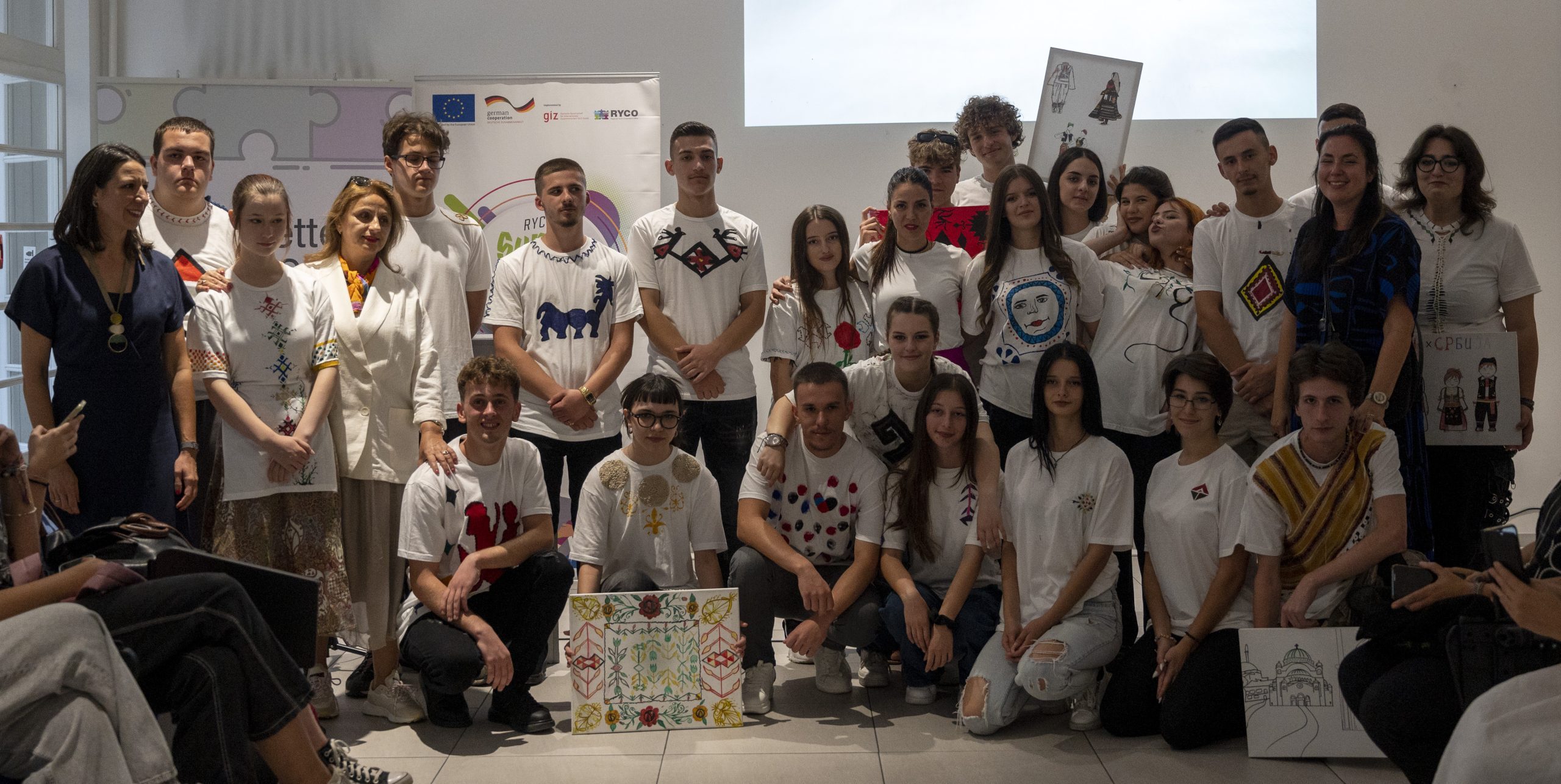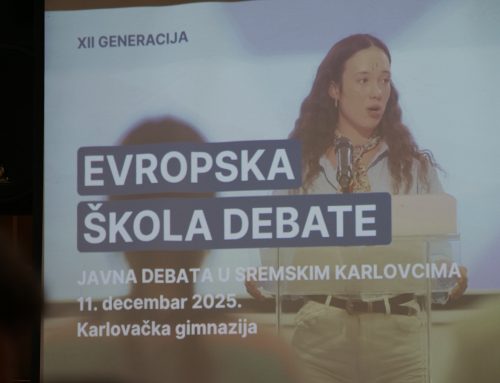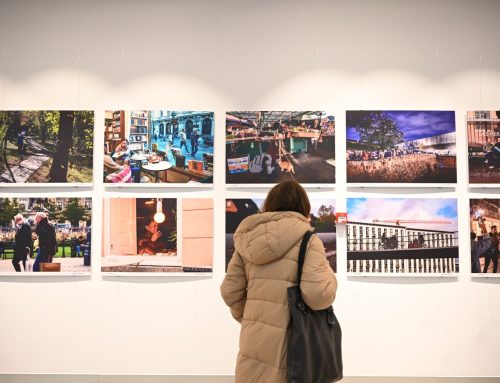The cultural heritage of Serbia and Albania and nonviolent conflict resolution were embodied in a fashion show designed by students of Tehnoart Belgrade and Hamdi Bušati Shkodër high schools. With support from their teachers, the students organised a fashion show at the gallery of RTS Klub. The fashion show marked the conclusion of the student exchange scheme “Fashion Reconnection” implemented within the Superschools programme of the Regional Youth Cooperation Office.
Tehnoart Beograd School for Mechanical Engineering and Artistic Crafts is one of 27 schools from Serbia participating in the second cycle of the Superschools programme. With a partner school from Shkodër, Tehnoart hosted two youth exchanges in Shkodër and Belgrade. During the exchanges, the students had the opportunity to experience the cultural heritage of the two local communities, learn about the similarities and differences of Serbian and Albanian culture, and nonviolent ways of conflict resolution. In addition, the students designed and prepared clothing items with traditional cultural motifs of Serbia and Albania, which were presented at a fashion show.
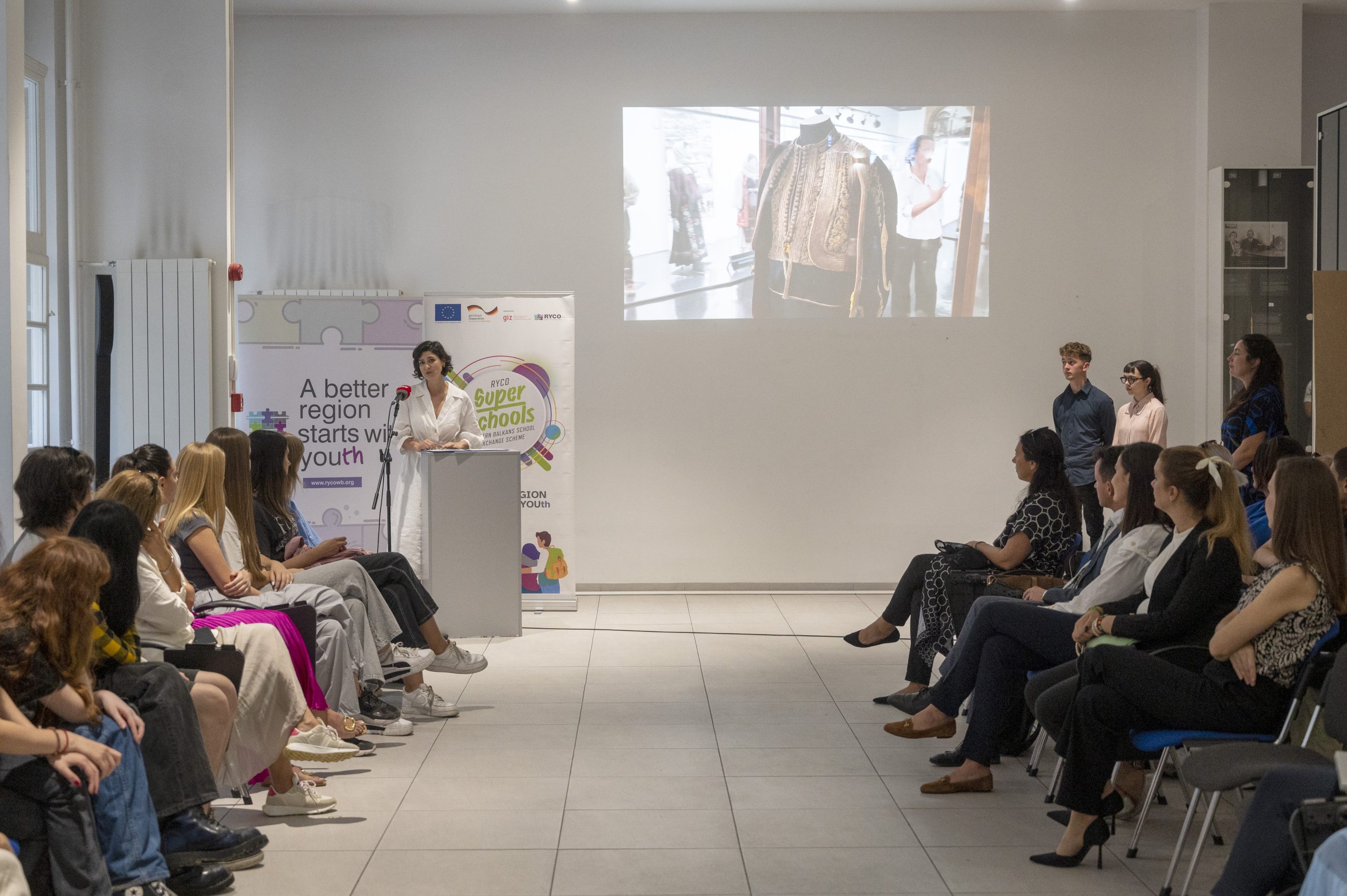
The fashion show was inaugurated by Ms Plamena Halacheva, Deputy Head of Delegation of the European Union to Serbia, Mr. Miguel Waltereit, First Secretary at the Embassy of the Federal Republic of Germany to Serbia, Ms. Ivana Antonijević, Assistant Minister of Tourism and Youth of the Government of Serbia, as well as Ms. Mina Zirojević, Assistant Minister of Education of the Government of Serbia representative of the Ministry of Education of the Government Serbia.
Deputy Head of the EU Delegation to Serbia, Ms Plamena Halacheva, said that building bridges of professional and cultural curiosity and cooperation was at the very heart of the Superschools programme, thanks to which we have the opportunity to host young people from the region and in turn, be their guests, to find what we have in common rather than what may divide us – to bring the youth of the region closer together.
“I am glad to learn that both teachers and students have benefited professionally and personally from this partnership because EU support for youth extends over many aspects of life, accounting for many challenges that the youth face, being one of the most vulnerable demographics in Europe and the Western Balkans. The EU fully supports initiatives that promote the spirit of reconciliation and cooperation among the youth in the region, and we will continue to support youth in promoting their ideas and shaping their future,” said Halacheva.
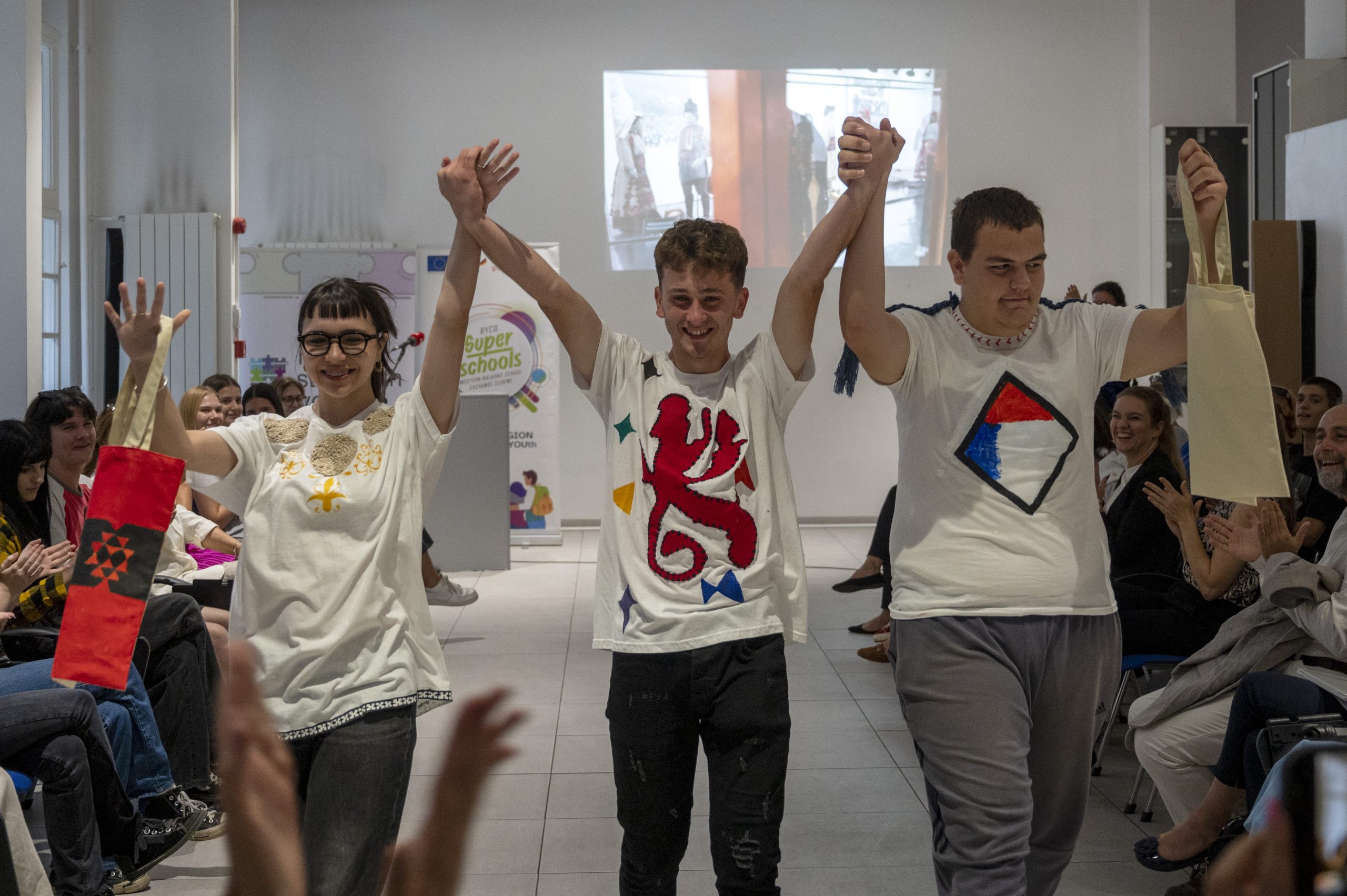
In an effort to create more social and economic opportunities for youth integration, more funding has been allocated through mobility and study projects such as Erasmus+ and the Youth Guarantee scheme, which supports the education and training of young people without jobs, said Halacheva.
Mr. Miguel Waltereit, First Secretary at the Embassy of the Federal Republic of Germany in Serbia, underlined the support of the Government of the Federal Republic of Germany to education systems in the region, especially for strengthening the capabilities of teaching staff and students.
“On the other hand, we are convinced that intercultural understanding and dialogue lead to reconciliation and peace. We know it because we learned it the hard way from our eventful history. Exchange programmes are an important pillar of constructive cooperation and joint progress in the future. Germany is determined to continue creating the political framework for this,” Mr Waltereit concluded.
Assistant Minister of Tourism and Youth, Ivana Antonijević, said: “Serbia remains committed to regional cooperation, and we strongly believe that through the RYCO, we can advocate for reconciliation and peacebuilding processes in the region. RYCO is the most important tool for the reconciliation of young people, and Serbia will remain committed to supporting its work and any other similar initiative. I kindly ask young people who participated in these exchanges to spread the word about their experience with their local community and spread positive examples of regional youth cooperation and newly forged friendships.”

“The Ministry of Education will continue to support the Superschools programme, and we remain RYCO’s partners in the next stages of this valuable initiative,” said Mina Zirojević of the Ministry of Education of the Government of Serbia.
In her recent State of the Union speech, European Commission President Ursula von der Leyen said that it was time to show the younger generation that we can build a continent where they can be, love, and do whomever and whatever they want – a continent united in freedom and peace. Peace is also one of the goals of Superschools, a school exchange programme in the Western Balkans supporting peacebuilding and reconciliation and intercultural learning and dialogue among schools, students, and their communities.
The school exchange programme allowed students and teachers to travel, showcase their schools and customs, and learn about local communities in different parts of our region. The exchanges organised by these two schools aimed to connect students from the two cities and offer them an opportunity to overcome existing stereotypes and prejudices.
Superschools is a three-year programme within the multi-donor project “Western Balkans School Exchange Scheme,” co-financed by the European Union and the German Federal Ministry for Economic Cooperation and Development (BMZ) and implemented by Deutsche Gesellschaft für Internationale Zusammenarbeit (GIZ) together with the Regional Youth Cooperation Office (RYCO).
RYCO is an intergovernmental organisation that stewards and promotes regional and intercultural cooperation of young people in the Western Balkans. RYCO’s programmes create opportunities for young people to engage in activities that build mutual understanding and reconciliation in the civic, social, educational, cultural, and sports domains. RYCO’s work centres around the youth, believing the young should contribute to developing cultural mobility, intercultural exchange, and reconciliation.

